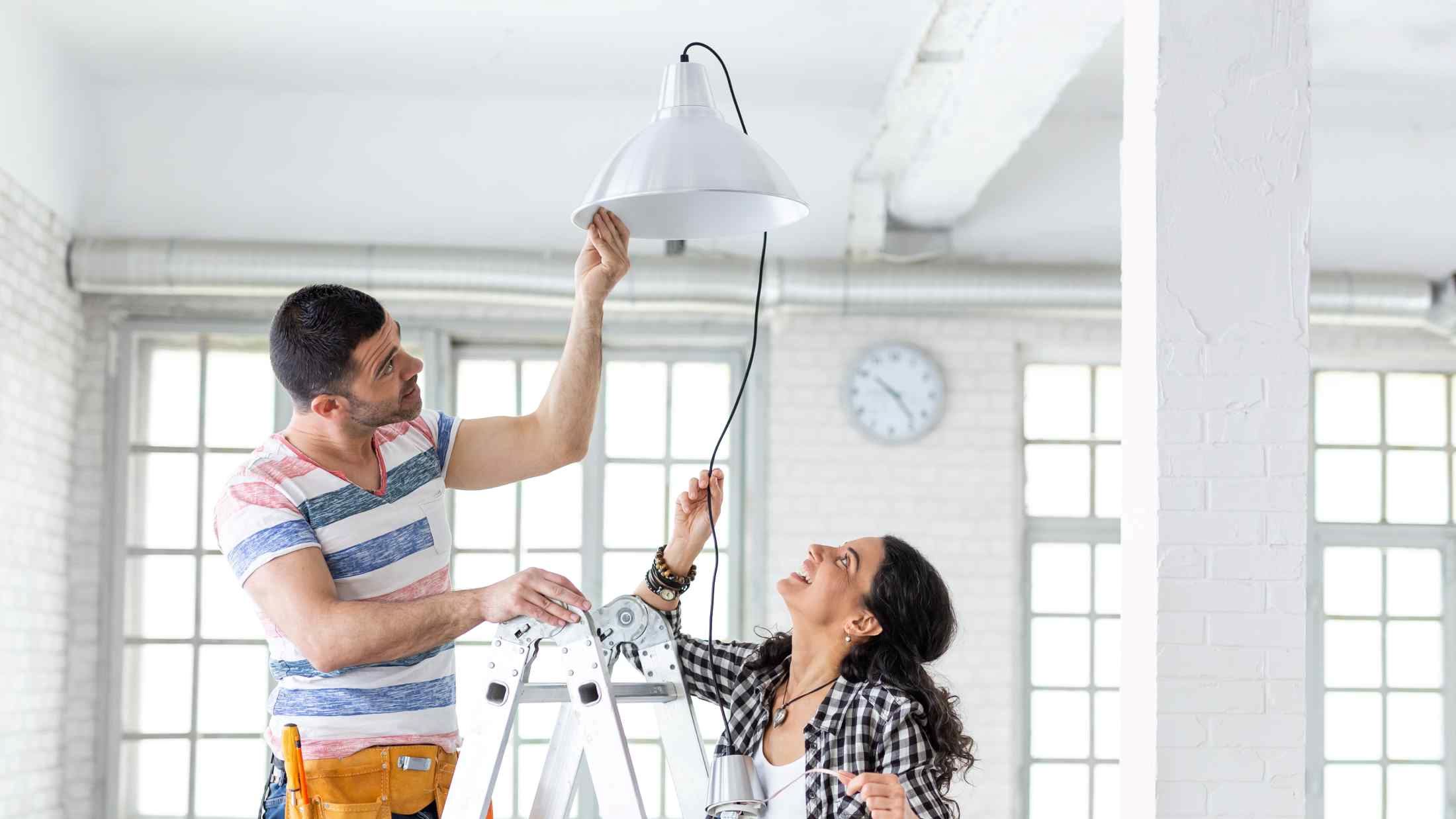As energy costs climb, you might've noticed your bills increasing. So, with budgets getting tighter, and temperatures dropping, you’ll need to be extra savvy to stay warm for less. That’s why we’ve put together a guide to some of the most effective ways to save electricity.
As more of us have adapted to the new world of working from home or hybrid jobs, energy-saving tips are even more important as you may well be using more energy while you work. Find out more in our handy guide, to help you save energy and money!
- Turning off lights to save energy
- Benefits of LED lighting
- Switching to energy efficient appliances
- Does unplugging appliances save electricity?
- Saving on water heating costs
- Using smart home devices
- Double glazing windows
- Home insulation
- Turn down the washing temperature
- Cooking with a lid on
- Solar powered devices
Turning off lights to save energy
We’re sure that someone’s reminded you to turn off lights when they’re not in use - but just how much energy do you save by turning off lights?
Estimates suggest that you can save about £20 a year by turning off lights when you leave a room. This energy-saving behaviour is good for your wallet and the environment too.
Benefits of LED lighting
Studies have found that LEDs use around a quarter as much energy as traditional bulbs and can last up to four times as long!
Along with LED lighting, use halogen bulbs for outdoor lighting. They give the same brightness as an incandescent bulb but use less energy.
Choosing energy efficient appliances
Buying an energy-efficient fridge means you can keep your food fresh and avoid extra costs. Some of the latest models can be controlled remotely. So, if you emptied the fridge before going on holiday but left it on, you can fix this at the tap of a button.
Washing and drying clothes is one of the most energy-intensive processes in your home – switching to an energy-efficient tumble dryer can change your bills overnight. Estimates suggest installing a newer model could save you £106 a year!
Does unplugging appliances save electricity?
Yes. Even when on standby, many devices still use energy if they're plugged in. Unplugging wjem they're not being used can save you about 5 to 10% of your home's enegry use.
Saving on water heating costs
Before looking at how you’re heating water, we’d suggest considering if you can reduce water usage. Taking a shower instead of a bath is a simple and easy way use less water, and as a result, less energy.
Along with this behavioural change, you can also upgrade how your home is functioning with these bigger changes:
- Lower your thermostat
- Insulate exposed pipes
- Install a more water-efficient unit
Using smart home devices
Home smart devices tell you in real-time how much your energy use costs.
With an automated thermostat, you can set heating to be on when you need it most, from anywhere.
For even more tips for more efficient heating, we’ve got plenty of suggestions like looking at the type of heating you’re using. Avoid using portable electric heaters, as they use lots of energy.
Double glazing windows
For long-term energy efficiency, double glazing your windows instantly stops a significant amount of heat loss.
The highest-rated double glazing is a great way to reduce your carbon footprint and can save an estimated £235 a year on energy use and 405kg of Co2 emissions.
It also helps reduce noise if you live in a busy area.
Home insulation
Up to a quarter of your heat escapes through roofs without attic insulation. So, check out our guide on how to insulate your house on a tight budget. Spotting areas where you’re losing heat will be your first port of call – roofs and walls are often the biggest culprits.
Government grants for attic insulation and wall insulation are also available so you may want to contact your local council to see if you're eligible.
Turn down the washing temperature
To clean your clothes without breaking the bank, a wash with cold water is a tried and tested way of saving energy.
Studies have found that by reducing your machine’s temperature by 10 degrees (from 40°C to 30°C) you can cut costs by more than half!
Cooking with a lid on
Cooking with a lid on your pots and pans helps to keep heat in. Estimates suggest it can save as much as 85% of the energy you'd use with an uncovered pan.
It's also an easy way to stop mould and damp from building up in your kitchen or nearby areas. As well as helping reduce cooking time.
Solar powered devices
Photovoltaic devices like solar power chargers for phones are a widely available means to use natural resources.
You may also want to install solar devices like panels on the outside of your home. How much energy you’ll save depends on where you live in the UK but on average it could be up to a tonne of carbon every year.
Help with heating costs
It’s worth knowing you may be eligible for government assistance with heating if you:
- Receive a state pension
- Have a low-income or no income
- Have a disability
It’s also a good idea to compare energy tariffs as you may find you're paying too much for your energy costs on your current plan.
Protecting your home with AXA
Along with protecting your home’s energy supplies, getting insurance for where you live is a must for peace of mind. At AXA we offer Contents and Buildings insurance to give you the assurance of a 24-hour emergency helpline for those unexpected moments.
You’ll also know that you can expect guaranteed repairs from our approved suppliers and cover for major risks like burst pipes, drainage and electrics.








